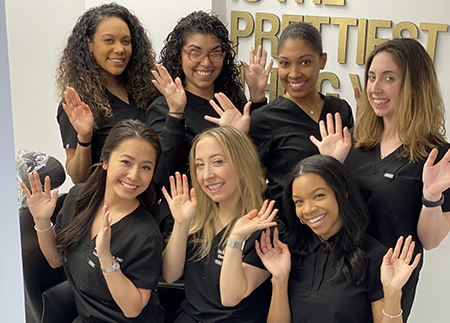What are dental emergencies?
Dental emergencies are situations wherein you need immediate dental care and attention. If you don’t get immediate dental care, the situation is likely to worsen or cause other complications. As such, dental emergencies are different from all other urgent dental situations. For example, losing a filling is an urgent situation because you must get your filling replaced to prevent infections and cavities. However, you can wait for several days without a filling, so it’s not a dental emergency. Meanwhile, if you have a knocked-out tooth, you must contact an emergency dentist within an hour or two or risk losing the tooth entirely, so it’s a dental emergency. As such, dental emergencies are time-sensitive situations wherein you must contact an emergency dentist without delay.What are the most common types of dental emergencies?
Knocked-Out Tooth
A knocked-out tooth is one of the most common (and obvious) examples of a dental emergency. Your tooth may get knocked out due to sports injuries, accidents, and falls. A knocked-out tooth is different from a broken tooth — it must be knocked out completely from the root. This is one of the clearest examples of a dental emergency because the chance of reattachment significantly diminishes after an hour. As such, you must contact a walk-in emergency dentist to reattach the knocked-out tooth within an hour. In the meantime, the tooth must be preserved in an airtight container. You can pick the tooth by the crown, rinse it clean without scrubbing the root, and place it in an airtight container with saltwater, milk, or saliva. The root and crown will survive in a moist environment until you reach your emergency dentist. If the tooth can’t be attached, the dentist will discuss alternative tooth restoration options.Dental Fractures/ Cracks
The shiny enamel forms the outermost component of the tooth and the strongest material in the human body. The enamel can withstand more force than all the bones in the human body, which is why it can bite and tear hard meats. However, even the enamel can crack, chip, or fracture due to injuries, falls, trauma, and other factors. In most cases, the enamel of the teeth cracks when you bite extremely hard objects, like bottle caps, ice, and hard nuts. If you have a tiny fracture on the surface, you don’t need emergency dental care. You can schedule an appointment during regular dental clinic hours — the dentist will probably seal the crack with dental bonding or filling. However, if the crack is deep or extends below the gum line, you must contact an emergency dentist immediately. When you visit the emergency dentist, they’ll examine your teeth, take x-rays to assess the internal damage, and curate the ideal treatment plan. If the damage is superficial, the dentist will apply bonding or filling to seal the crack. However, in some cases, the dentist may have to perform a root canal or tooth extraction, depending on the severity.Severe Toothaches
Toothaches can be symptomatic of various problems, some mild and others severe. On one end, a toothache may indicate that you have food items stuck between your teeth. On the other end, a toothache may be symptomatic of a dental abscess. As such, it’s important to investigate the possible severity of your toothache to determine if it’s an emergency. When you have a toothache, you should brush and floss your teeth to remove possibly stuck objects, use painkillers, and try other pain relief methods. If your toothache persists or grows in severity, you must contact an emergency dentist. You should especially contact an emergency dentist if the toothache is accompanied by a fever. Some possible causes of severe toothaches include severe dental decay, gum infections, abscess, fractured teeth, and damaged fillings. The treatment may range from dental fillings to dental extractions, depending on the root cause of the toothache.When do you need emergency dental care?
- You’ve got an extremely loose tooth.
- You have severe, persistent, and unexplained toothaches.
- Your gums are sore, red, or bleeding.
- Your jaws are swollen.
- Your toothache is accompanied by a fever.
- You notice a pus-filled cyst in your gums or teeth.
- You notice signs of infection, such as a foul smelling odor or cysts.
- You have constant headaches and toothaches.
- Your tooth has gone numb after a prolonged period of toothaches.
- Your mouth tastes like metal, indicative of a burst cyst.








